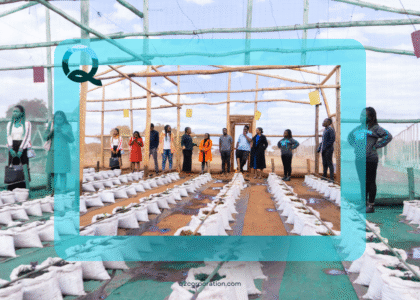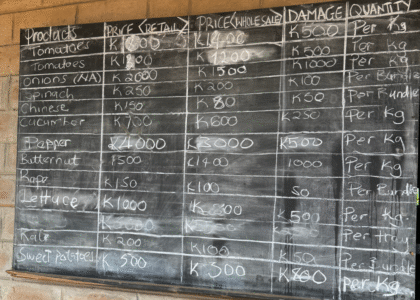When I first started building ecosystems of innovation in Malawi, the dream was bold but simple: give young people the tools and opportunities to thrive, and they will transform their communities.
For years, we poured into edtech, training programs, and hubs designed to equip students with digital skills. The impact was undeniable — young people were learning, creating, and innovating.
But then came the harder truth: without strong systems, the impact was unsustainable.
In Malawi, as in much of Africa, the B2C model — building directly for consumers — often collides with reality. Donors shape agendas, households face economic limits, and scale becomes a mirage. It became clear that if we wanted to move beyond pilot projects and press headlines, we needed to build with the biggest player in the room: government.
The Missing Link: Systems, Not Silos
By Nthanda Manduwi | Founder, Q2 Corporation & Kwathu Kollective

Governments are often painted as barriers to innovation, but in emerging markets, they are also the gatekeepers of scale. Whether it’s agriculture, education, or technology, government sets the policy, owns the infrastructure, and convenes the partnerships that determine whether an idea thrives or dies.
For Q2, this meant reimagining partnerships not as afterthoughts, but as the foundation. We began asking:
- How can we align with national strategies, like Malawi 2063, instead of working around them?
- How do we co-create solutions with ministries and agencies, rather than pitching to them after the fact?
- How do we design innovation models that governments want to adopt, because they solve their most pressing challenges?
The answers reshaped everything.
From EdTech to AgTech and Gaming
At first, our work lived in the edtech space — training university students and fresh graduates in digital skills through the Ntha Foundation and Kwathu Kollective. The demand was there, but the funding model was fragile, overdependent on donor cycles.
So, we pivoted to agriculture, the backbone of Malawi’s economy. Instead of training only for jobs, we began designing Smart Village Farms — models that integrate farming, logistics, education, and technology to create self-sufficient local economies. And because agriculture is policy-driven, government partnerships were not just helpful, but essential.
The unexpected turn came with gaming. When Q2 expanded into simulation and gaming — inspired by my time at Xbox — we saw a powerful opportunity: to engage young Africans in agtech not just as farmers, but as gamers, creators, and innovators. Here, too, government support matters: from IP policy to youth programs, to ensuring Africa is not just consuming games but creating them.
Why Government Partnerships Unlock Scale
Working with governments has taught us that true innovation in emerging markets isn’t about bypassing the public sector — it’s about building with them.
Government partnerships:
- Unlock Scale → Policies can turn one pilot farm into a national program.
- Create Legitimacy → Alignment with national strategies builds trust with investors, donors, and communities.
- Build Infrastructure → Roads, internet, electricity, and land rights are public goods — without them, innovation stalls.
- Ensure Inclusion → Government mandates can ensure innovation reaches rural, marginalized, and underserved communities.
In short: private ingenuity must meet public willpower.
A Blueprint for the Future
At Q2, we are building with this principle at our core. Whether it’s Smart Village Farms in Malawi, simulation games to reimagine agtech for Africa’s youth, or innovation ecosystems through Kwathu Kollective, we know that government is not the obstacle — it is the amplifier.
The future of emerging markets won’t be shaped by startups or governments alone, but by ecosystems where both align. That’s the work we’re committed to at Q2: turning local partnerships into global models of innovation.
When I look back at our pivots — from edtech to agtech, from donor-driven pilots to government-aligned programs, from classrooms to simulations — the throughline is clear: partnerships scale impact.
If Africa is to write its own innovation story, governments must be at the table not as gatekeepers, but as co-builders. And if Q2 can model that, then perhaps Malawi can become not just a case study, but a catalyst.





